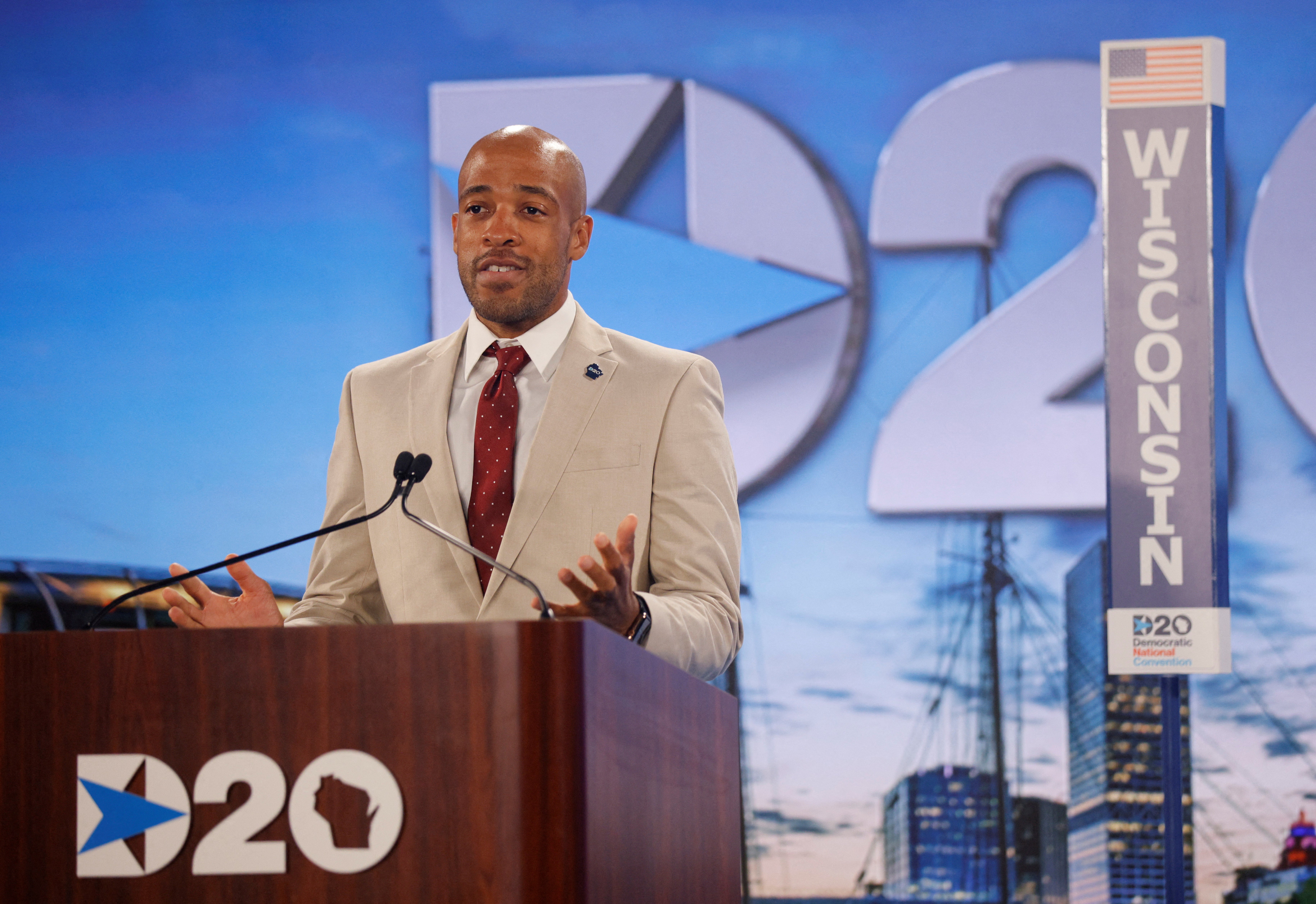Blue mirage? Pollster warns Democratic leads in midterms may be exaggerated
Nate Cohn says forecasters could be falling into the same trap as in 2016 and 2020
Your support helps us to tell the story
From reproductive rights to climate change to Big Tech, The Independent is on the ground when the story is developing. Whether it's investigating the financials of Elon Musk's pro-Trump PAC or producing our latest documentary, 'The A Word', which shines a light on the American women fighting for reproductive rights, we know how important it is to parse out the facts from the messaging.
At such a critical moment in US history, we need reporters on the ground. Your donation allows us to keep sending journalists to speak to both sides of the story.
The Independent is trusted by Americans across the entire political spectrum. And unlike many other quality news outlets, we choose not to lock Americans out of our reporting and analysis with paywalls. We believe quality journalism should be available to everyone, paid for by those who can afford it.
Your support makes all the difference.New York Times political analyst Nate Cohn has warned that polls that show Democrats in the lead might be making the same mistakes that forecasters made in 2020.
In 2020, The Upshot website created a polling diary that included a table that showed what would happen if polls were as “wrong” as they were when they missed Donald Trump’s 2016 victory.
“Early in the 2020 cycle, we noticed that Joe Biden seemed to be outperforming Mrs Clinton in the same places where the polls overestimated her four years earlier,” he said. “That pattern didn’t necessarily mean the polls would be wrong — it could have just reflected Mr Biden’s promised strength among white working-class voters, for instance — but it was a warning sign.”
Now, Cohn warns that the same pattern is repeating itself.
“That warning sign is flashing again: Democratic Senate candidates are outrunning expectations in the same places where the polls overestimated Mr Biden in 2020 and Mrs Clinton in 2016,” he wrote.
Cohn uses Wisconsin’s Senate race where incumbent Republican Senator Ron Johnson is trailing in polls behind Lieutenant Governor Mandela Barnes by seven points in Marquette University Law School’s poll. Cohn said that Wisconsin was “ground zero” for polling errors in 2020.

“In the end, the polls overestimated Mr Biden by about eight percentage points,” he wrote. “Eerily enough, Mr Barnes is faring better than expected by a similar margin.”
Numerous polls in places like Pennsylvania and Ohio have also shown Democratic candidates like Lieutenant Governor John Fetterman and Tim Ryan, respectively, with a lead against their Republican counterparts.
Cohn notes a trend where the more that polls overestimated Mr Biden in 2020, the better other Democrats seem to perform in polls, while Democrats are performing worse in places where polls were more accurate like in Georgia, where Senator Raphael Warnock trails former University of Georgia running back Herschel Walker.
“It raises the possibility that the apparent Democratic strength in Wisconsin and elsewhere is a mirage — an artifact of persistent and unaddressed biases in survey research,” Cohn warned.
Democrats are hoping to hold onto their 50-seat majority and potentially gain seats in places with Republican Senators like Pennsylvania, North Carolina and Ohio.
Cohn noted how some pollsters like Brian Stryker at Impact Research, a Democratic firm, are trying to deal with the problems surveys had in 2020 by “restricting the number of Democratic primary voters, early voters and other super-engaged Democrats” they survey and that The Times and Siena College are doing the same.
But he noted that if polls were just as wrong as they were in 2020, the race for Senate would look quite different.
“The apparent Democratic edge in Senate races in Wisconsin, North Carolina and Ohio would evaporate,” he wrote. “To take the chamber, Republicans would need any two of Georgia, Arizona, Nevada or Pennsylvania. With Democrats today well ahead in Pennsylvania and Arizona, the fight for control of the chamber would come down to very close races in Nevada and Georgia.”





Join our commenting forum
Join thought-provoking conversations, follow other Independent readers and see their replies
Comments